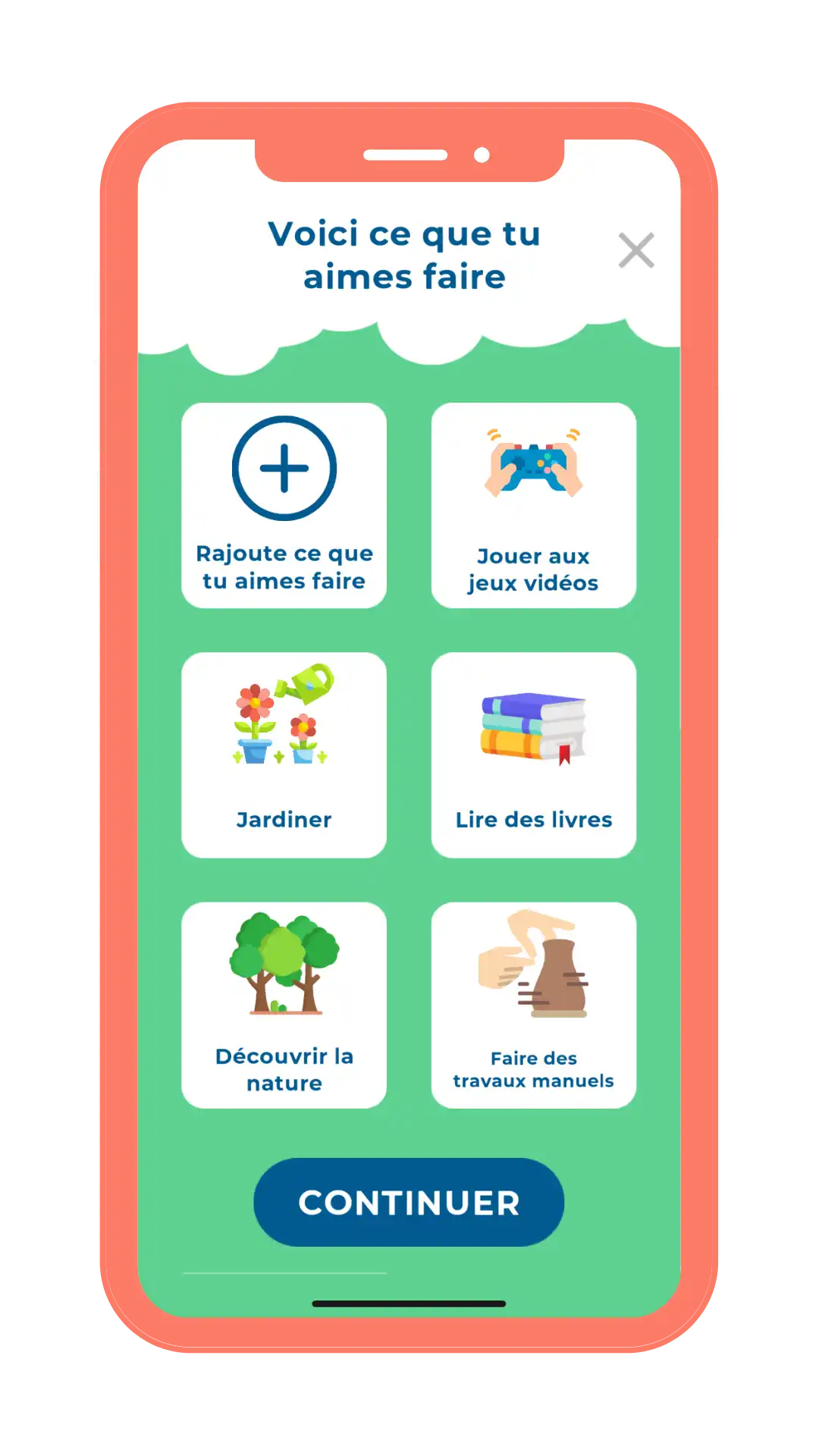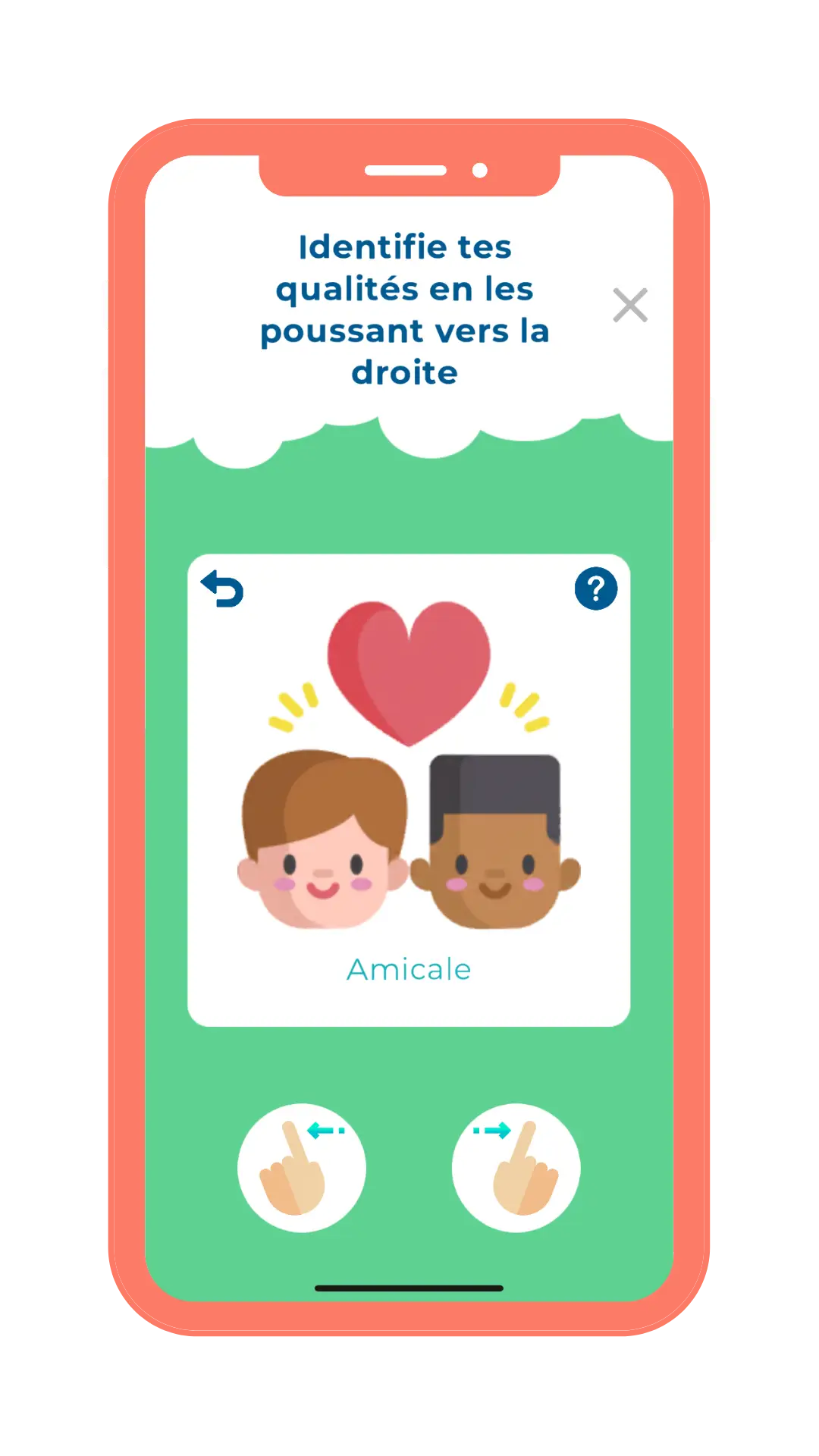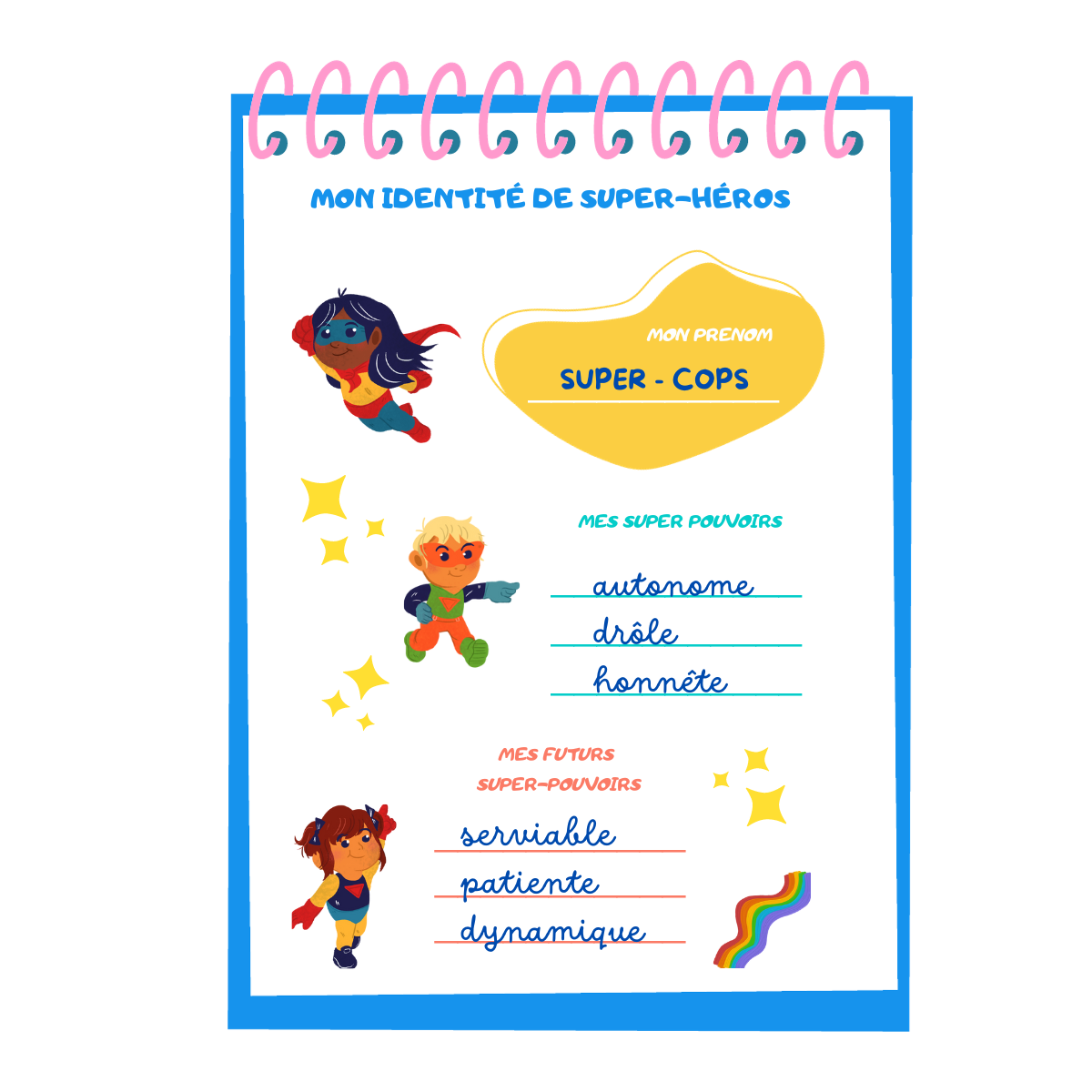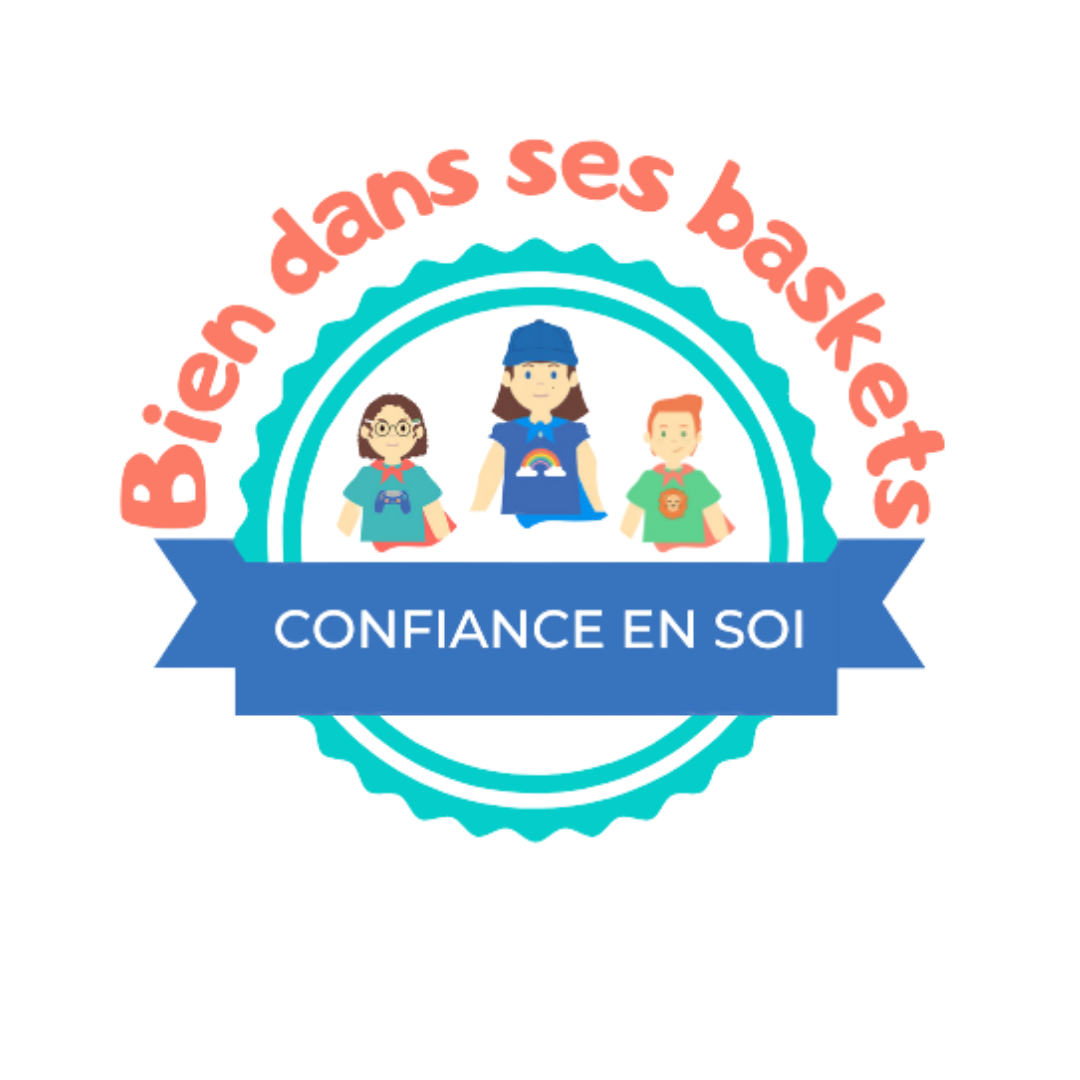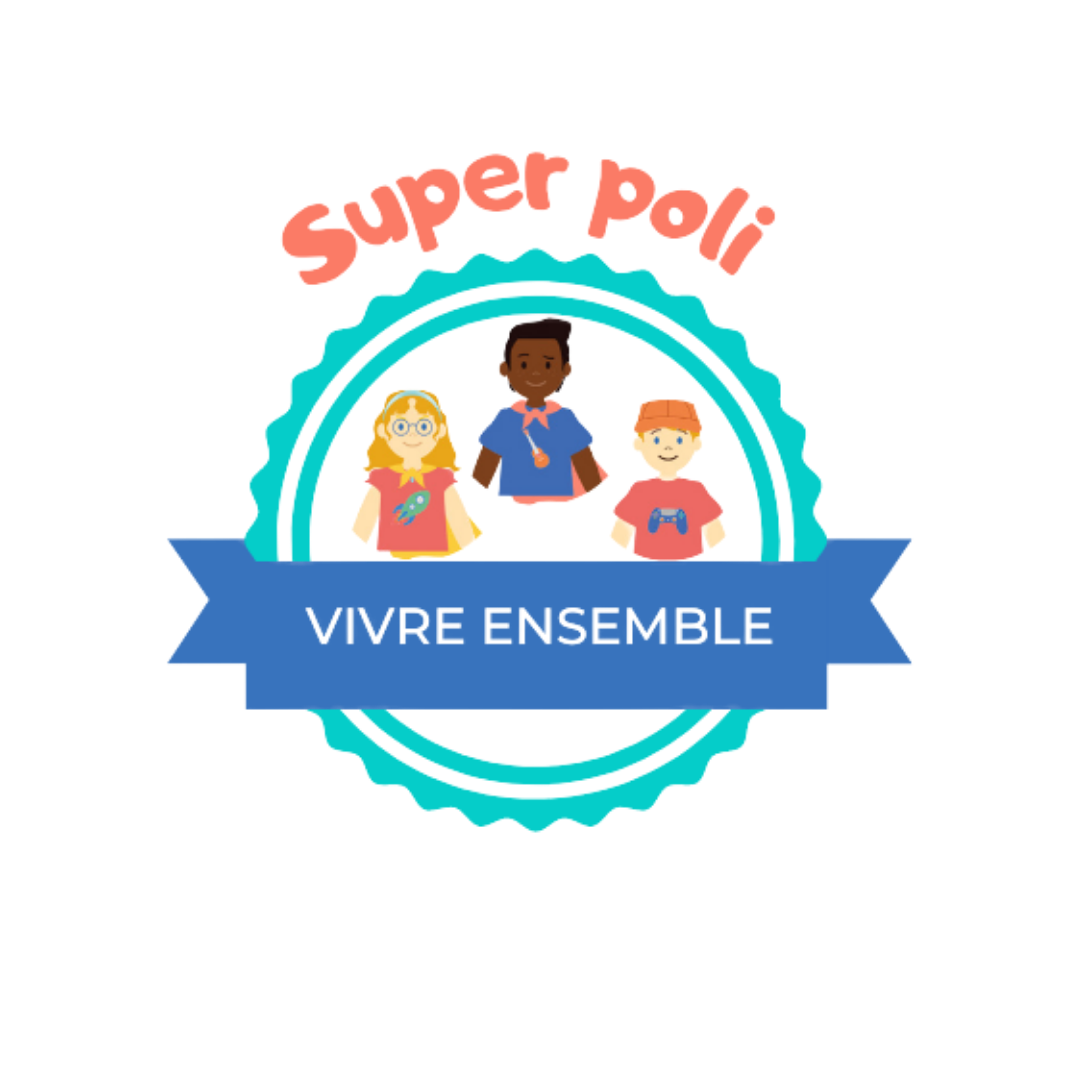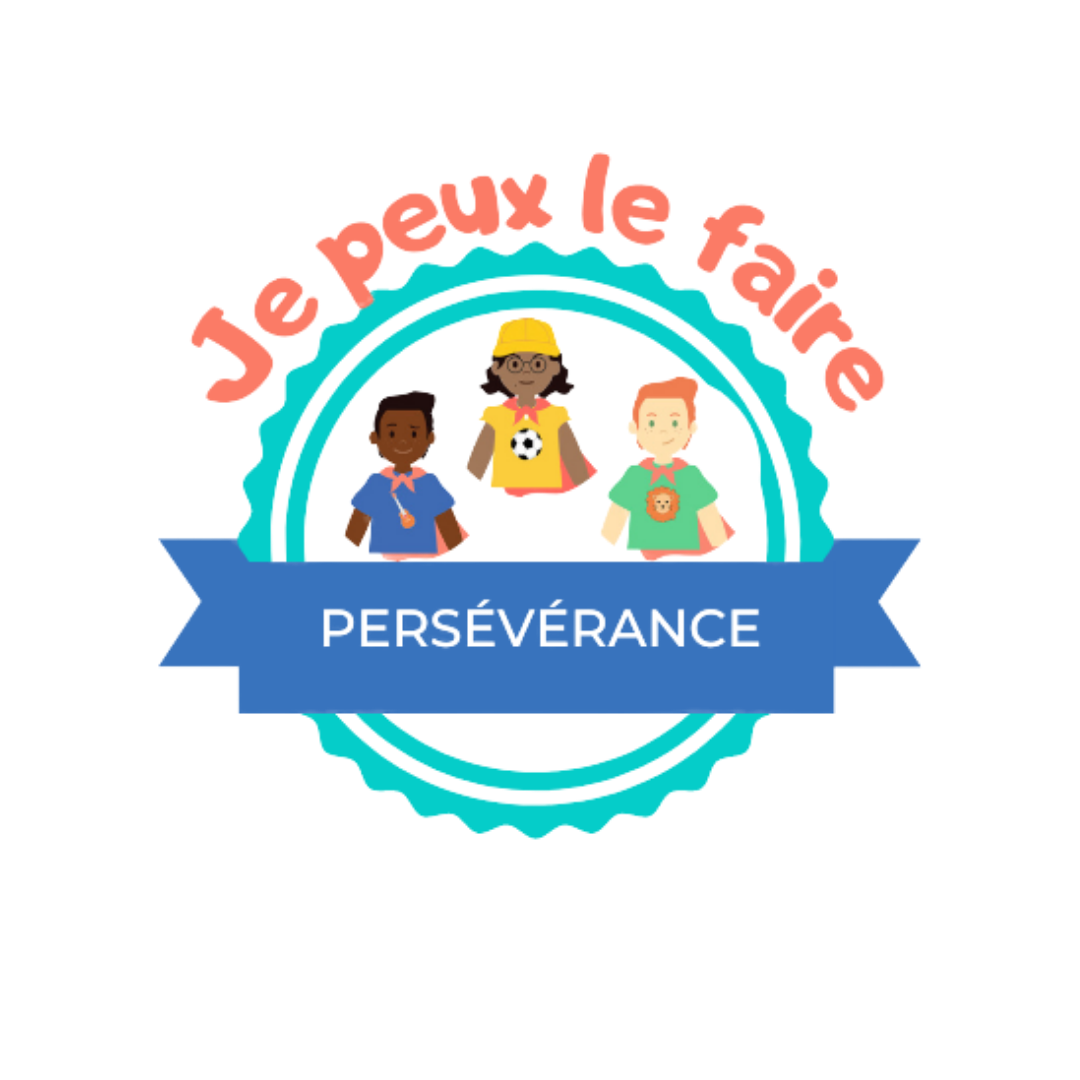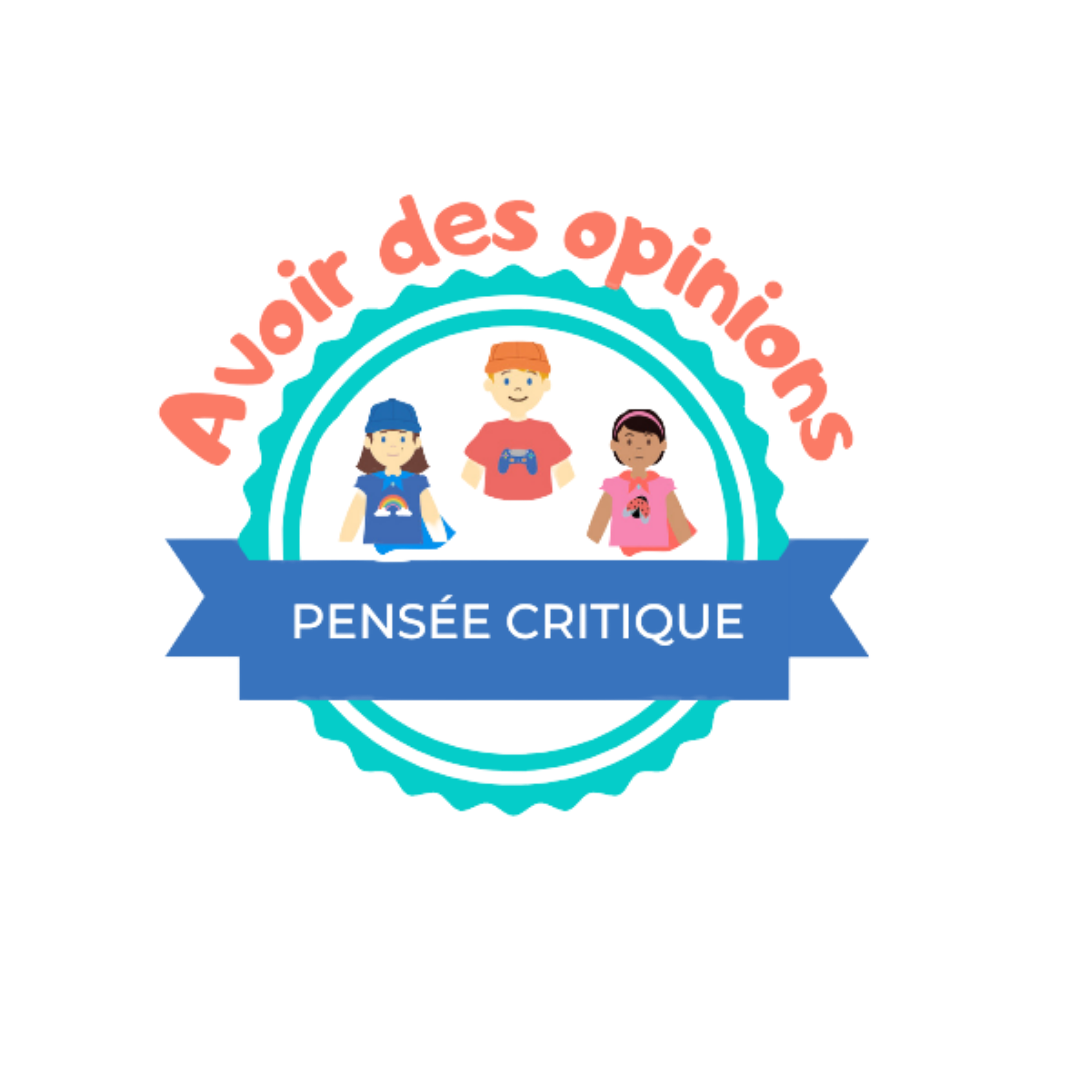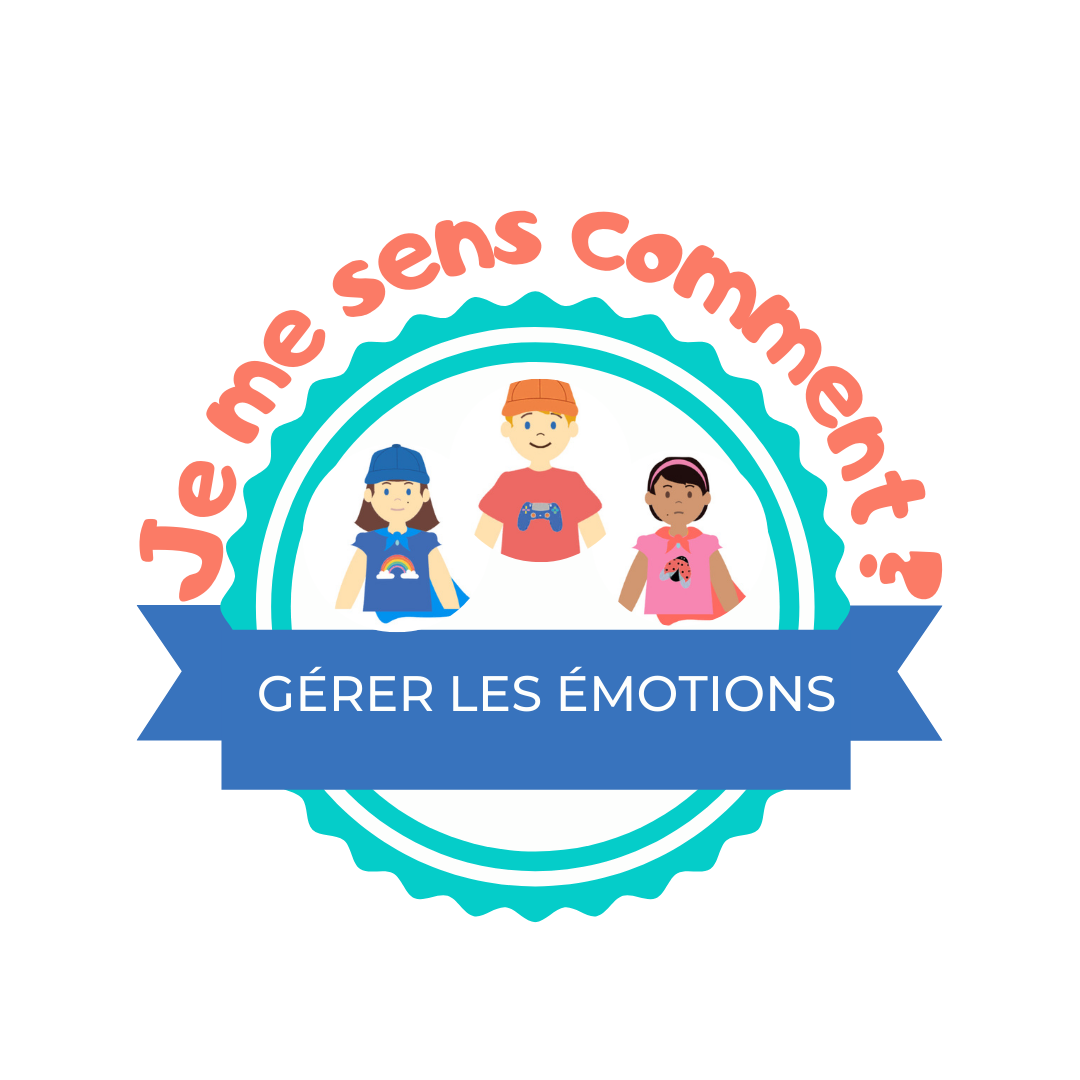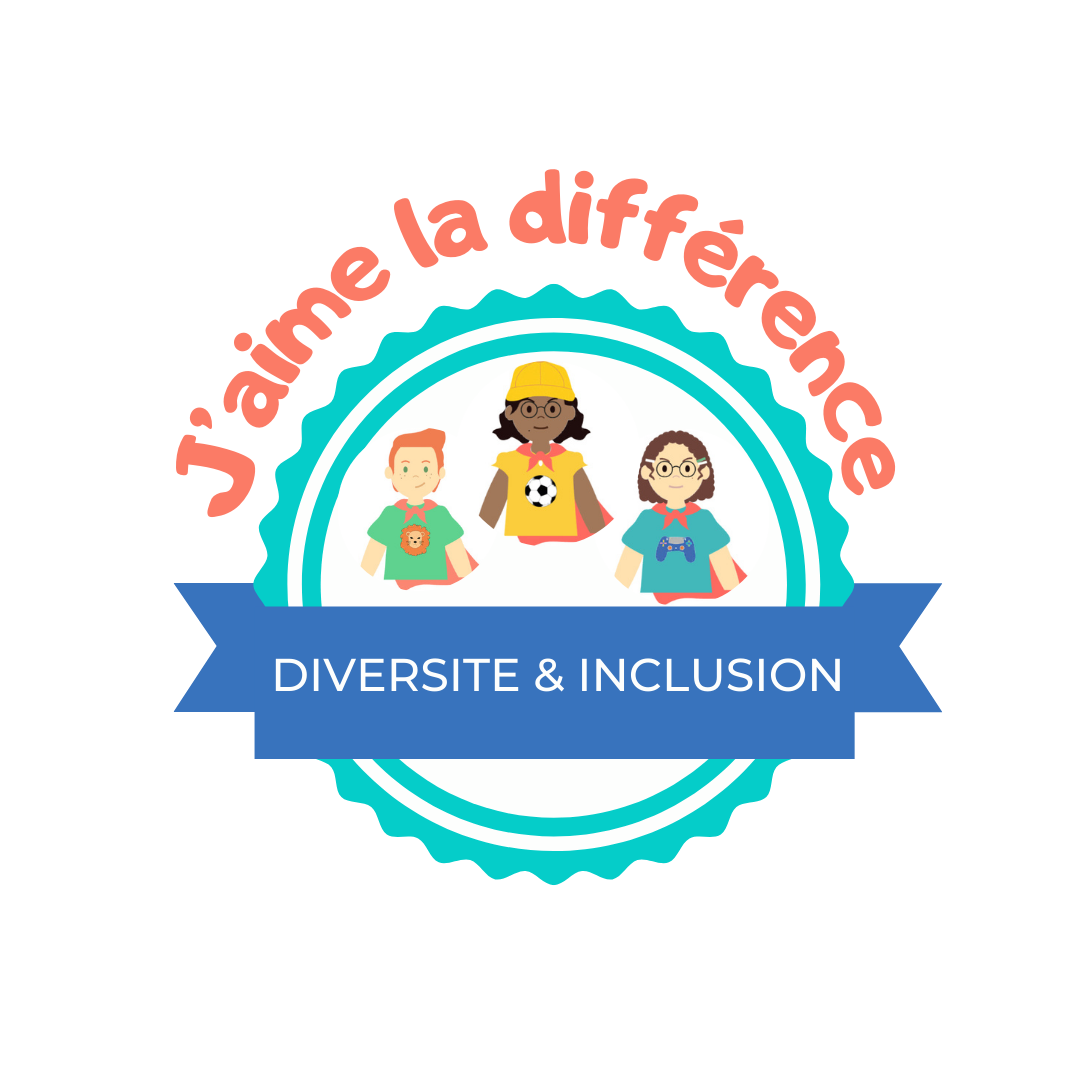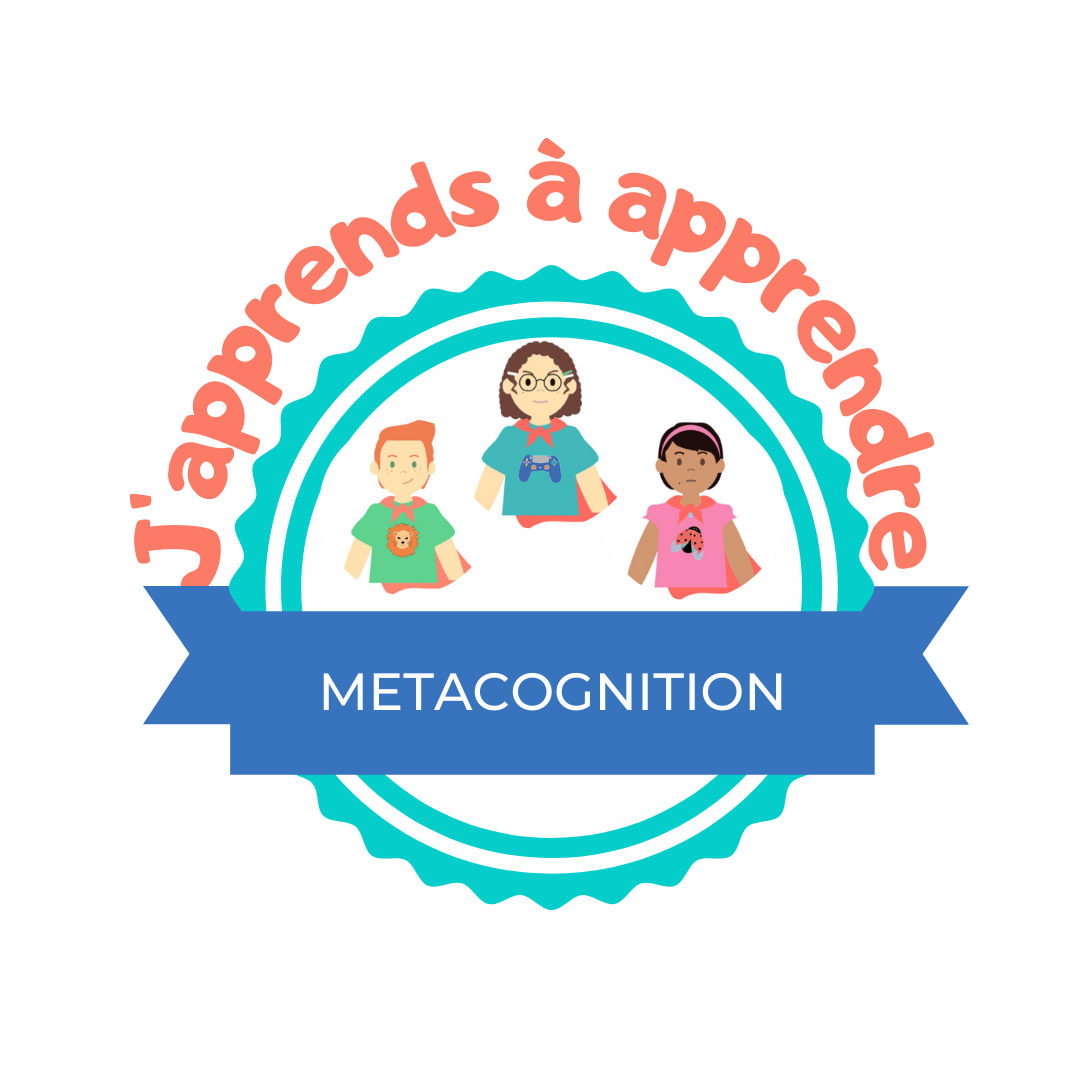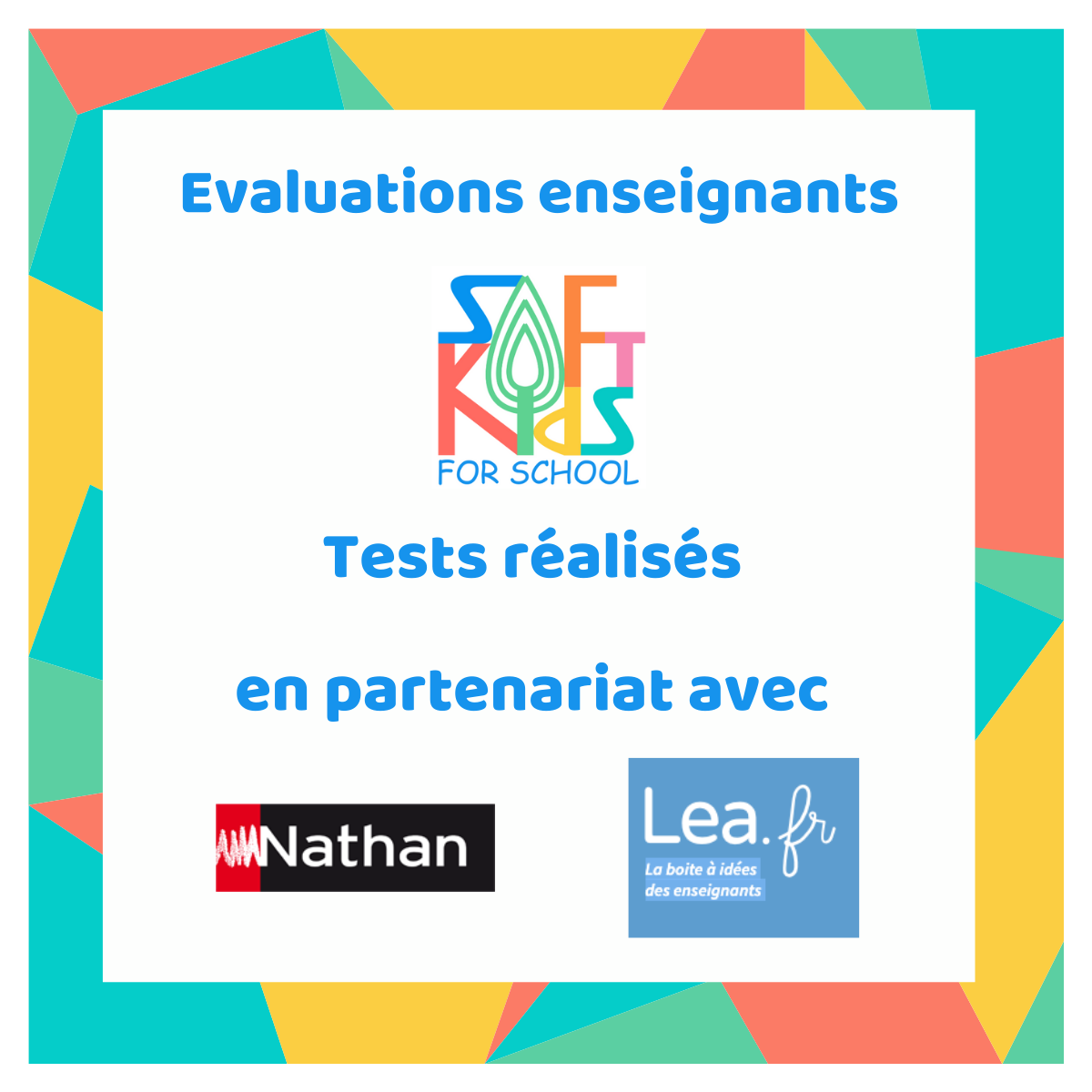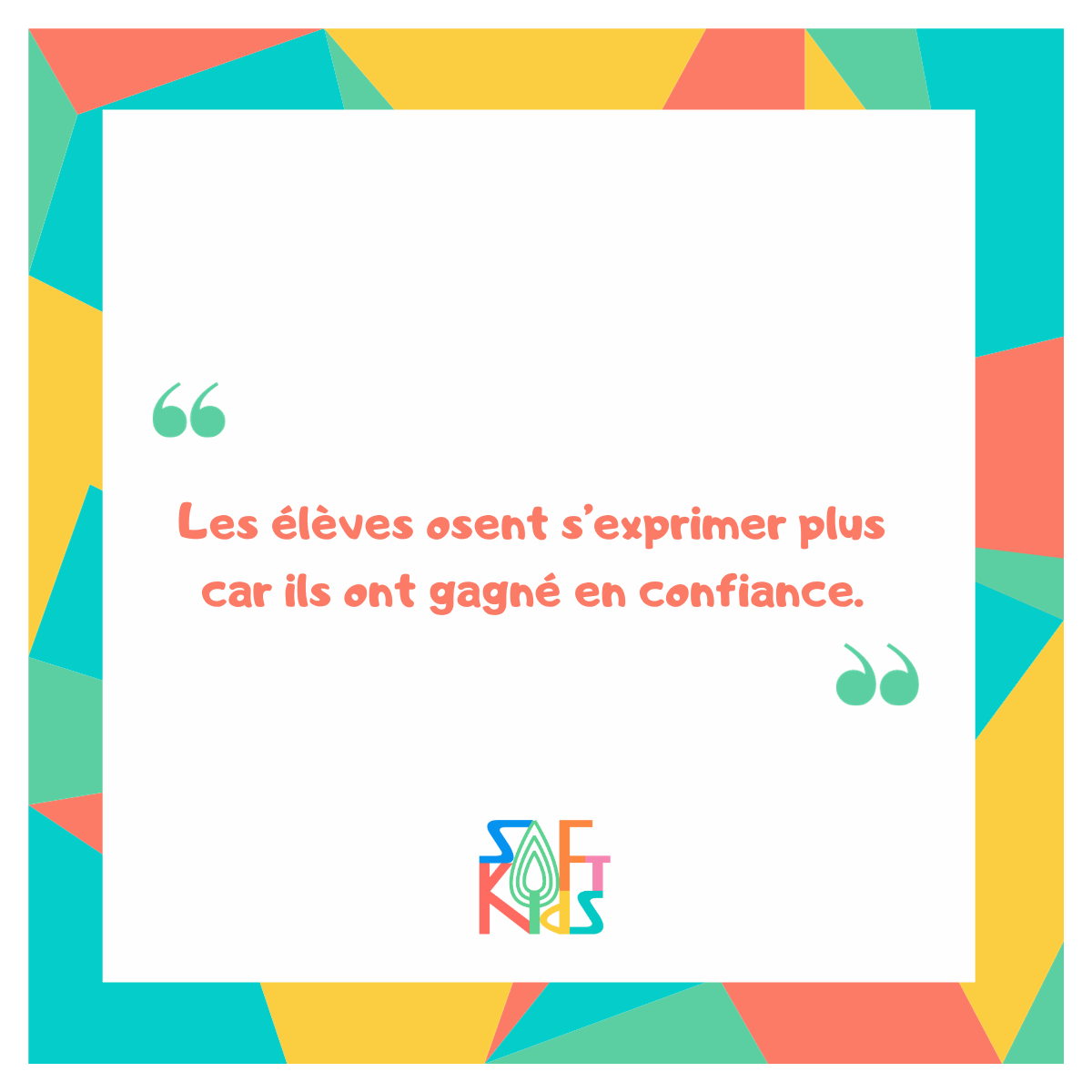SELF-CONFIDENCE PROGRAM
Findings on self-confidence
Bandura's work in the 1970s showed that belief in one's ability to accomplish a task is an important predictor of motivation, perseverance and success.
Unfortunately, according to the 2018 PISA results, France ranks 62nd out of 65 OECD countries in terms of student self-confidence!
What do the national education programs say?
Domain 3 of the Common Base, which deals specifically with personal development and citizenship, stipulates that :
"[The student] uses his intellectual and physical faculties with confidence in his ability to succeed and progress."
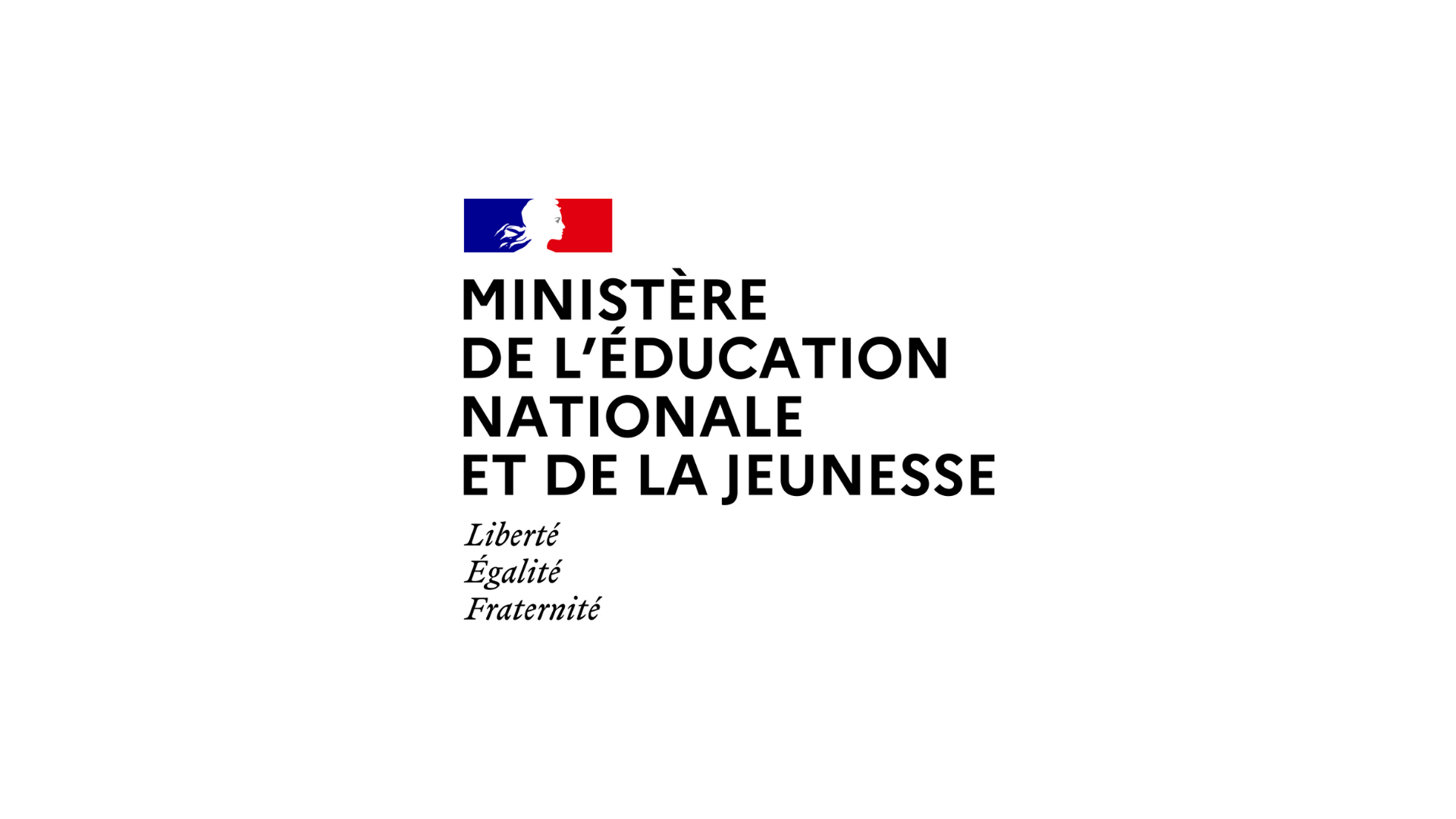
OUR program objectives
"SELF-CONFIDENCE
- Get to know your qualities and skills better
- Adopt a positive, serene attitude
- Become aware of your preferences and decision-making power
- Avoiding stigmatizing judgments
The program in detail
Session 1 : In this first session, students become aware of a lot of things they can be proud of: they list the things they've learned since birth and the qualities that make them special. Finally, they share an experience they're proud of and create their own superhero poster.
Session 2: Pupils discover how to use compliments in a positive way, using mini videos. They then learn to change their point of view to transform a negative situation into a positive one, or a flaw into a quality. A sophrology exercise is also proposed to ward off negative thoughts and boost self-confidence by focusing on breathing.
Session 3: Pupils become aware of the choices they make on a daily basis with a swiper game. Then they assert their preferences, in writing with the "Chinese portrait" game, or orally with the "cat or dog" game.
Session 4: Students identify labels, i.e. hasty judgments that can be demeaning and stigmatizing, and learn to replace them with more encouraging formulations using a drag & drop game. They then put this attitude into practice through role-playing.
Session 5: The final session enables students to take stock of their learning and formalize it in a written trace to be completed.
Our edutainment approach
Our approach combines independent games on tablet/computer and classroom activities.
Why use digital technology to work on CPS?
A variety of games enable students to reflect on themselves and discover best practices in concrete, everyday situations.
Ergonomics and easy-to-understand instructions encourage intuitive use by students: sorting games, drag & drop, MCQs, mazes, sophrology, etc.
Then a class activity is proposed. This could be, for example :
> a collective exchange or debate to develop opinions
> a role-playing game to put into practice what has been learned
> a small-group activity to consolidate what has been learned and learn to collaborate
> an artistic activity to develop creativity
> an activity to formalize what has been learned, such as application exercises or the creation of a written record.
A turnkey tool
In your teacher interface, you will have access to all the resources you need to implement the session:
- student tracking charts
- step-by-step teaching guides for easy-to-use sessions
- student materials to be projected or photocopied
- a proposed yearly progression and references to official programs
- instructions for use
To sum up:
The Emotion Management program will help your students recognize and regulate their emotions, and develop their emotional intelligence. By increasing their capacity for empathy, you promote a good classroom climate and conditions conducive to learning.

